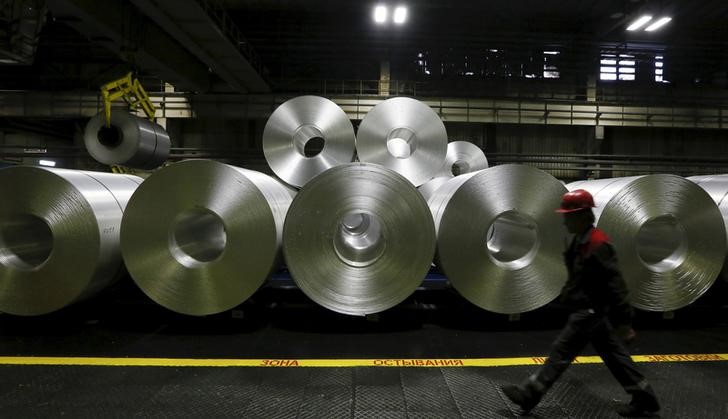* Q3 premiums marks first decline since Q4, 2015
* Fall reflects weaker spot premiums, higher local stocks
* Producers cut offers from initial $100-110/T proposals (Adds comments, details)
By Yuka Obayashi
TOKYO, July 5 (Reuters) - Japanese aluminium buyers have sorted out lower premiums for the metal in the July to September quarter, as much as 23 percent less than the previous quarter, on weaker spot premiums, six sources directly involved in the quarterly pricing talks said.
The buyers have agreed to pay producers a premium of $90 to $93 per tonne for metal to be shipped this quarter, down between 19 percent and 23 percent from last quarter, the sources said.
Japan is Asia's biggest importer of aluminium and the premiums for primary metal shipments it agrees to pay each quarter over the London Metal Exchange (LME) cash price CMAL0 set the benchmark for the region.
This is the first drop in premiums since the October-December quarter of 2015, and follows declines in local and overseas surcharges for physical aluminium. For April to June, buyers paid $115 to 117 per tonne PREM-ALUM-JP .
"We've struck deals at $90 per tonne with some producers," a source at an end-user told Reuters, declining to be named due to the sensitivity of the talks. Two other buyer sources at trading firms said they agreed with a producer at $90 a tonne.
Meanwhile two other end-user sources said a deal was sealed at $93 a tonne, while another source at a producer confirmed the company signed deals at $93 a tonne with multiple buyers.
"Another deal was sealed at $91 with a producer," one of the buyer sources said.
The latest quarterly pricing negotiations began in late May between Japanese buyers and miners including Rio Tinto Ltd RIO.AX RIO.L , Alcoa Inc (NYSE:AA) AA.N and South32 Ltd S32.AX .
Top aluminium producers initially offered Japanese buyers premiums between $100 and $110 per tonne for July to September primary metal shipments, down 4 to 15 percent from the previous quarter. buyers countered at around $85 to $95 a tonne due to higher inventories at home as well as weaker spot premiums in Asia, the United States and Europe. stocks held at three major Japanese ports climbed for the first time in nine months in May due to an increase in imports amid softer demand at home. demand in Japan has been steady except for use for window frames," a source at a trading firm said.
"But local spot premiums have been weighed down to below $90 per tonne in some cases as some Western traders appeared to have offered deep discount to get rid of their inventories, which have affected our negotiations," he said.
